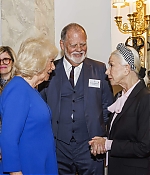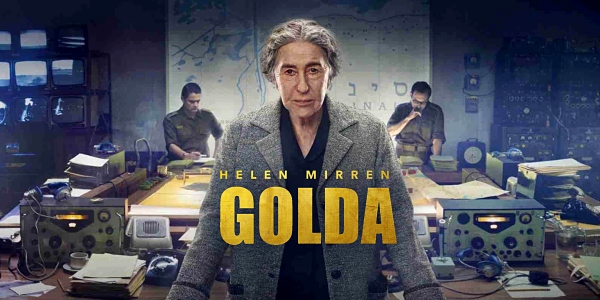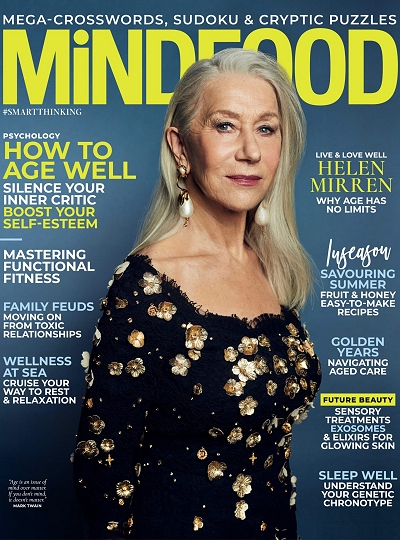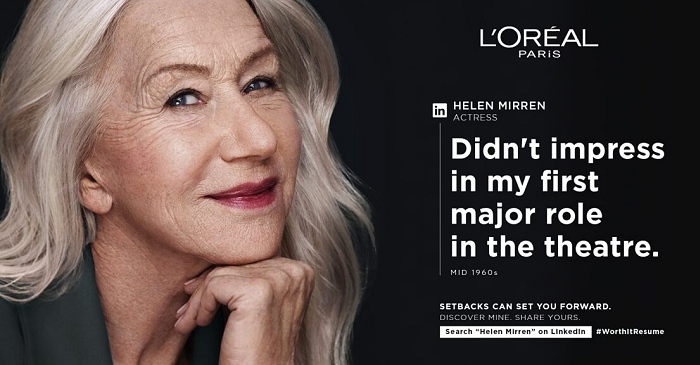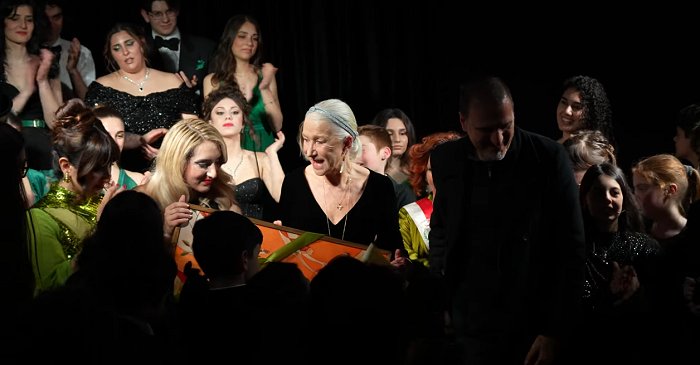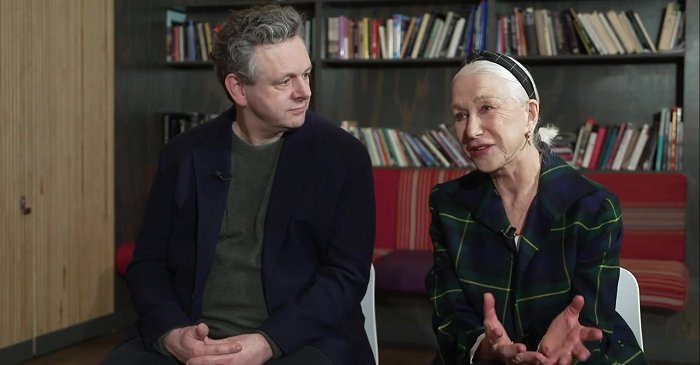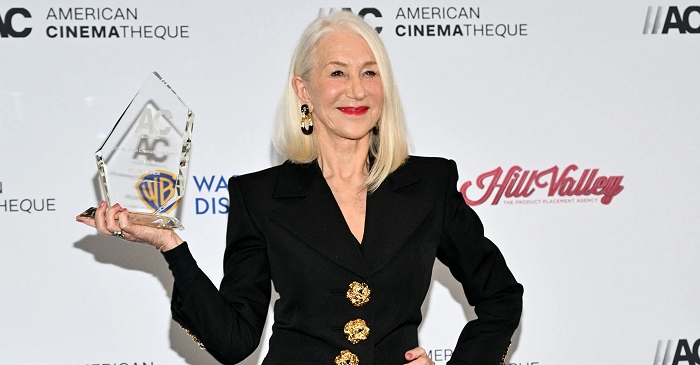
|
Welcome to The Helen Mirren Archives, your premiere web resource on the British actress. Best known for her performances with the Royal Shakespeare Company, "Prime
Suspect" and her Oscar-winning role in "The Queen", Helen Mirren is one of the world's most eminent actors today. This unofficial fansite provides you with all latest
news, photos and videos on her past and present projects. Enjoy your stay.
|
Celebrating
10 years
on the web
|
“It’s always great to be the central character,” she says. “As a woman, you don’t often get that opportunity.”
Long before The Closer, Saving Grace or any other TNT shows built around strong female detectives with insight and issues, Helen Mirren set the bar about as high as it can go playing Jane Tennison in the Prime Suspect series. There were seven Prime Suspect movies or miniseries over the course of 15 years, and now they’ve all been collected in one DVD gift set. If you’ve missed even one installment, you’re missing out; they are absolutely riveting, and they feature some of Britain’s finest actors, including Ralph Fiennes, Tom Wilkinson and Ciarán Hinds, at early stages of their careers. The incomparable Dame Helen talked to more.com about playing Jane Tennison and what the series has meant to her.
MORE: The first Prime Suspect came out in 1991 and the last in 2006. What was it like to trace the arc of this character over 15 years?
Helen Mirren: As always, you know, the years flew by. I would only do one about every two years, so in between, obviously, I would go off and do lots of other projects. And then I would revisit it. Then I took a seven-year break altogether and we came back to it for the last two.
Was it difficult to get back into character?
It was very strange: It was sort of like seeing an old friend. Even if you haven’t seen them for five or six years, you pick up right where you left off. It always felt a bit like that to me.
Was there anything especially important to you about developing the character?
You know, each time we came back to it we had a new writer, new director. And I feel with writers and directors. . . they’re very creative people, and I think the best work you get from them is if you allow them to be a part of the creative process. So whenever we came again to a new Prime Suspect, I would always say to the writer, “This is yours, forget about any before this. Don’t feel you have to obey any rules. Take it where you want it to go.” Very occasionally, I’d have to say, “I don’t think Jane Tennison would say or do that.” But mostly not.
Did anything about the direction she took surprise you?
The last one [with an alcoholism story line] very much came out of the writer. That was what he wanted to deal with. So I followed my rule and said okay, let’s do it! Some people were not very pleased with seeing her as an alcoholic. They wanted to see her more triumphant and successful. But I always loved the flaws in Jane Tennison—the disasters more than the triumphs.
Did you get any comments on that from real-life police?
No, I don’t remember people talking about that particular issue. But I do know that marriages are very difficult to hold together, therefore relationships, and there is a lot of drinking in the police force. Historically, more in the olden days than nowadays—but I think there is a lot more than they fess up to. There is a great fondness, I must say, amongst the police for Prime Suspect. Because I think they felt it was truthful to their life and their world and the way things operate. They don’t mind the flaws that are revealed.
What did you like best about playing Jane? Is there anything you can single out?
It’s always great to be the central character and the extremely proactive character. As a woman, you don’t often get that opportunity—even nowadays. When the first Prime Suspect came out, it was sort of unheard-of. In fact, that was one of the big questions, whether the public would accept a woman in the lead role like that. But it was a huge hit immediately and they said, “Right, we’re going to do three more.” And then three more were incredibly successful. Then they said, “Oh my God!” When they started, the production company and the television company, they had absolutely no thought about doing more then three. So that was my contract, just to do three. Then they came back and said, “No, no. We want to do more.” It did take everyone by surprise, to a certain extent. But in another way it didn’t surprise me, because they were really well done.
You said in your autobiography, In the Frame, that doing the Prime Suspects was a sort of graduate course for you in acting for the screen.
It absolutely was.
And it led to other roles for you in film.
Very much so. It was an incredibly important part of what’s got me to where I am today. It was intense, many many hours on a set with many different directors, many different writers. I loved it, and that’s the way you learn. Also, they were shot like a film. We had basically the schedule of a low-budget film—it was fast, but not as fast as American network TV would be.
In terms of your upcoming work, have you just finished filming the remake of Arthur?
I am on my way, I finish tomorrow.
Your role [nanny/caretaker to Russell Brand’s Arthur, a wealthy alcoholic] was a man in the original. [John Gielgud won an Oscar for it.] Why did they change it?
That was one of the major changes [the filmmakers] wanted to make, to bring it up to date, to make it theirs. Although we have the producer of the original, the sound guy of the original working with us. There are lots of people on the set who worked on the original, which is great. But I think it was very much, “How do we make this ours?” I think in general, also, the women’s characters are reconsidered. It is very woman-heavy, and the character that was originally played by Liza Minnelli is stronger, not so enabling. We’re in a new world, you know.
You’re also starring in Julie Taymor’s film of The Tempest later this year, as Prospera, another role originally written as a man. What was that like?
That was amazing. A very demanding, very extraordinary experience. It was great to do Shakespeare again. I wanted very much to do it because there are not a lot of great roles for women—grown-up, older women—in Shakespeare. Like everything else! I hadn’t done Shakespeare for a long time, and I had kind of forgotten how remarkable it is.
Prime Suspect: The Complete Collection is available starting September 7.

